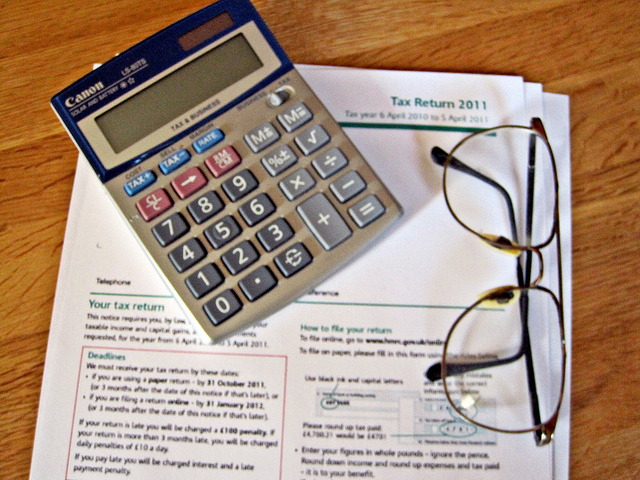Buying Under Market Value Investment Properties
updated 4th October 2016
The key to buying well is to calculate the amount you believe the property is worth, decide your limit and stay there
Buying at mortgagee sales or deceased property estate can be a cheap and lucrative way to boost your portfolio – as long as you’re willing to negotiate and do your due diligence.
Top 10 tips to buying cheaply and buying well
- Location, location, location. Property needs to be in close proximity to schools, shops, public transport, and close to parks or gardens.
- Inner city period homes are always a good investment being constantly in demand and easy to rent out.
- Property should have the potential to be able to renovate. Open plan living is very popular, while a neat and clean kitchen, bathroom, toilet and laundry are essential for easy resale.
- Look for property on large blocks of land. Corner blocks are also ideal for strata title subdivisions.
- Always research property prices and rental yields in any suburb or town of interest, preferably over the past three years, to get a good indication of future growth potential.
- Always get a building survey report, to ascertain the condition and indicate likely costs if you go ahead with the sale. This is also a good negotiating tool.
- Buy a property that has interested buyers. Three or four bidders at an auction determine resale potential and suggest a solid capital return.
- Look for nearby growth corridors; areas the government is investing in, such as infrastructure, roads, schools, public transport.
- Search outside your state for investing. Consider mining booms in Western Australia and the rental boom in all inner city suburbs.
- Talk to neighbours in the area, as they’ll usually have a broad knowledge of the property you’re considering, the area, its industries, employment, economic history and potential of their own property.
Opportunity knocking
In order to buy a property at a good price, you need to have an intricate understanding and knowledge of the property market to help you recognise a bargain when you see one.
We recommends the top three starting points:
- Organise your financials and seek out the best home loan for your needs
- Determine whether you’re looking at buying a house or unit for investment
- Become familiar with market values in areas of interest
Managing your financial documents and wading through the glut of home loan products on the market is time consuming but one that needs to be sorted out first. Speak to your lender or consult a mortgage broker should you need extra assistance. It’s essential to determine how much you can spend and which mortgage repayment will best suit your circumstances. This will help you avoid spreading yourself thin and finding yourself in the situation of having your own home repossessed down the track.
Value for money or money down the drain?
While you can snap up a bargain at mortgagee sales, you have to understand how the local property market has been performing to make sure you’re not buying an underperformer. “In NSW, the current areas falling in value with an average decline of 5.7% due to a staggering number of repossessions include Bankstown, Fairfield, Merrylands, Auburn, Guildford, Blacktown and Granville.”
However, Director of Property Secrets Paul Giezekamp is seeing things differently. Buying house and land properties in more than a dozen areas in and around the Liverpool, Blacktown and Penrith regions has produced a string of successful investments for him and his wife.
“The value of some of our investment properties has close to tripled over the past few years in these suburbs. I’d be surprised to find many inner Sydney suburbs which have mirrored this. The key is to buy house and land packages rather than units. This enables future potential to demolish, subdivide and rebuild duplexes and double your rental income.”
It all comes down to conducting a thorough due diligence and negotiating well. “If you negotiate well, then it doesn’t matter whether you’re buying in a mortgagee sale or not,” says Helen Collier-Kogtevs, director of Real Wealth Australia. “Mortgagee auctions do not necessarily mean that you will buy under market value as banks these days are wanting to try and obtain as much from the sale as possible.”
One person’s trash is another’s treasure
While that lonely property down a side street in need of a cosmetic pick me up could be the key to slashing thousands off the market price; steer clear of that dilapidated main road disaster, in dire need of a complete structural overhaul.
“While renovating can be a very cost effective way of building equity, many investors underestimate costs involved, so beware,” warns Collier-Kogtevs.
Giezekamp says properties needing cosmetic renovations are an excellent way to negotiate a lower sale price. “Basic additions or repairs such as paintwork or retiling the areas of the kitchen, bathroom or laundry can make a big impact to a property’s resale value or to rent out. However, investors should keep costs to a minimum and avoid venturing into structural additions, by which costs can quickly escalate.”
Seeking the expertise of a property inspection company will identify any major problems, such as reconstruction work, termite or parasite infestation and obtaining a building survey report will also protect your financial interests. Check with councils in regards to future infrastructure such as new highways, zoning or developments, and find out if there’s a low or rising crime rate. Remember, you need to have all questions answered prior to auction, as bids are legally binding.
Calculated strategies
Giezekamp believes researching the rationale behind a vendor’s decision to sell is vital. “Motivated sellers are essentially looking to get rid of their property quickly which can be beneficial to you in terms of negotiating a better deal. Finding out whether they’ve made a killing elsewhere on another property, how long their house has been on the market for or if it’s a deceased estate will present you with a better understanding of the property you’re interested in and act as a guide as to how much you should offer.”
Demand and competition for a particular property can drive normal market prices up considerably during an auction as opposed to a private treaty sale, so it’s crucial to maintain a calm and level-headed approach on the big day. Being aware of dummy bidding; that is, false bids made for the sole purpose to artificially increase the price of a property, will also protect you from being pressured into paying more than you want or are able to.
The key to buying well is to calculate the amount you believe the property is worth, decide your limit and stay there. Even if you envision a property’s potential capital growth booming in years to come and are determined to snag it at any cost, remember the golden rule of investment properties: you make your profits when you buy. Unless you pay the right price for a property, you won’t achieve the desired results.
Buying myths and broken promises
Monique Wakelin, director, Wakelin Property, finds the concept of buying under market value unsettling. “I think this is predominantly a misconception as truly purchasing a property under its market value is an exceptionally rare practice.”
She explains that there are the ‘classic renovator’s delight’ properties which may be severely compromised in a number of ways and aren’t worth pursuing, mainly due to the expensive and excessive structural repairs and renovations required. “Some may cost up to $40,000 to $50,000 in order to bring them up to structural soundness.”
Wakelin also thinks that many investors also continually try to compare properties that are not directly comparable. For example, they will compare a renovated property with an unrenovated one, or a property on a main road with one in a better side street, before deeming one more ‘valuable’ than another and incorrectly believing they have scored a bargain.”
Wakelin cites properties being poorly marketed as being possible under-market prospects, but again stresses this as being extremely uncommon. “A vendor who unwittingly hires an agent who is inexperienced, or has poor negotiation skills, or is not familiar with the area, or lacks presence may sell a property for under what it is actually worth. In these instances, a buyer may save money, but if the property is sought after, the market will dictate the value,” says Wakelin. “As far as deceased estates go, trustees are legally accountable to the estate and must be seen to go through a transparent process of selling at correct market value.”
Giezekamp disagrees. “I deal with buying properties under market value every day. I believe there are definitely cheaper homes ripe for the picking but, as with anything, trial and error dictates whether you do it right and get a good deal or not.”
Giezekamp suggests first homeowners and property investors should look at house and land packages as opposed to units, as they provide scope for further development, and start simple. “It’s the small deals that make the big ones later on. Cut your teeth on the smaller deals for the first home, before progressively moving on to the bigger projects.”
Researching which areas are actually selling within an investor’s price range along with maximising what is within their budget is Wakelin’s best advice.
At the end of the day, and the buying process, the best way to cut through the myriad of rules and differing perspectives on buying property is by arming yourself with knowledge and letting experience, common sense and good advice be your signposts.
This article has been republished with permission from Your Investment Property magazine. Try our Loan Repayment Calculator and find the best repayment strategy for you.



